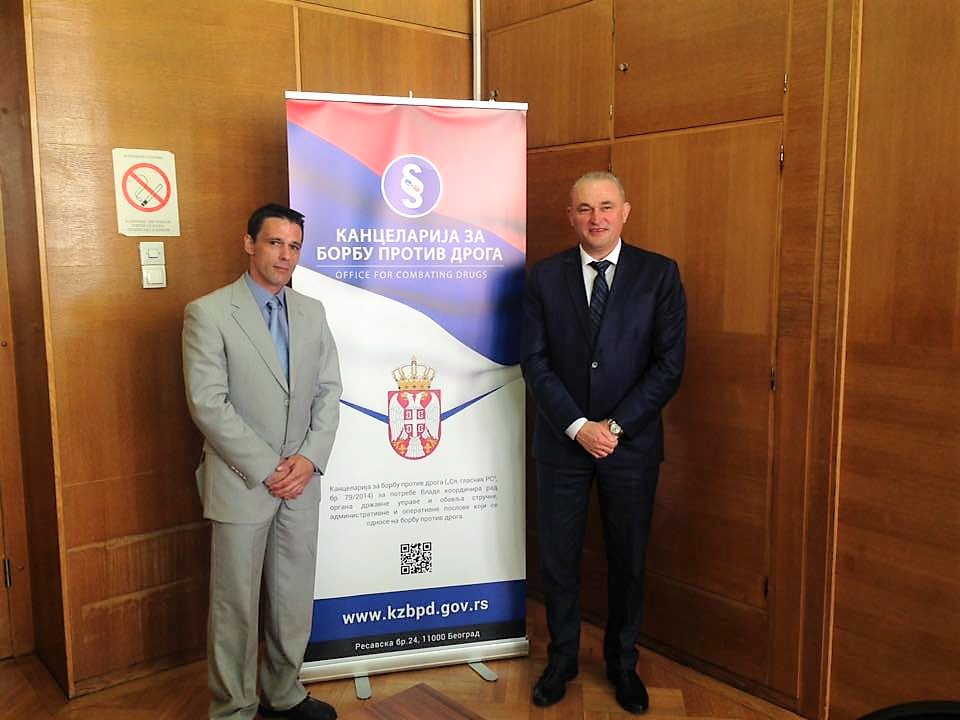Mr Papamalis as Senior Expert at Policy and Legal Advice Centre (PLAC) Analysed the existing legislation, supported the drafting of the national legislation on drug precursors in order to comply with EU Regulations and the UN Conventions
Background information in relation to PLAC II project:
The scope of PLAC II project is to provide support to relevant national institutions in charge of alignment of national legal acts with the EU acquis and to contribute to further building of capacities of relevant national structures for successful carrying out of accession negotiations.
The PLAC II project should achieve two results:
RESULT 1 - Enhanced compatibility of national legislation with EU legislation and its effective implementation,
RESULT 2 - Enhanced capacities of the relevant national structures for successful carrying out of accession negotiations.
In general, the project aims at fostering the process of accession negotiations of Serbia by supporting the effective alignment of national legislation with the acquis and its implementation and by further building the capacities of involved carriers of the EU integration process in Serbia.
Mr. Papamalis main tasks were to study and review the Serbian legislation in force, and also of the relevant strategic documents
❖ Preparation and drafting of the Legal Gap Analysis (LGAs);
❖ Identification of a set of recommendations for harmonisation of Serbian legislation in the field of drug prevention;
❖ Provide to the Serbian competent authorities’ a thorough and detailed account of the requirements laid down in the EU regulations and increase their knowledge and understanding on the identified gaps, obstacles and suggest tangible solutions.
However, before initiating re-drafting and proposing amendments in the new draft Law, a proper policy mapping was pertinent in order to increase knowledge of the contextual reality associated with available resources and existing institutional infrastructure. Consultations were conducted in order to gain knowledge and incorporate policy makers and relevant stakeholders interests, capacities and readiness in regard to the harmonization of the legislation and their views on the transposition process in their fields; and secondly to obtain general descriptive information associated with Serbian drug policy and legislation, demand and supply reduction interventions.
Consultations were conducted with:
- Ministry of Health, Assistant Minister and the Head of the monitoring system, national focal point of the EMCDDA
- Ministry of Interior - Deputy Head of Department for Smuggling Suppression of Synthetic Drugs and Abuse Prevention at - - - Criminal Investigations and Drugs Trafficking Suppression
- Director for combating Organized Crime
- Director of the Government Office for Combating Drugs
- Anti-smuggling department - Custom Administration of Serbia (CAS)
- Ministry of Finance, Customs affairs and customs procedures division
- Ministry of Agriculture and Environmental Protection
- 'Batut' Institute of Public Health
Last week Mr Papamalis in collaboration with state authorities conducted a training workshop at the Ministry of Justice in Belgrade.
His first presentation focused on the main findings from the ‘Analysis of the level of compliance of Serbian Law with EU legislation in the area of drug abuse prevention and trade in drug precursors - state of play and perspective “
Beyond the harmonization of the legislation other issues that were assessed were related to:
- Drug policy and drug Laws in Serbia
- National Drug Strategy and Action Plan, A balance between Demand and Supply reduction
- Inter-agency coordination, treatment, prevention, harm reduction and funding gaps and trends
- Highly debated topics in the EU drug policy and future drug policy landscape in Serbia
The second part of Mr Papamalis training module was designed to provide policy makers and relevant stakeholders with an overview of the latest evidence and best practices on drug prevention, early detention, monitoring and evaluation with a view to promote the principles of “common and shared responsibility”, “community networking” and “integrated, balanced and evidence-based approach”.





